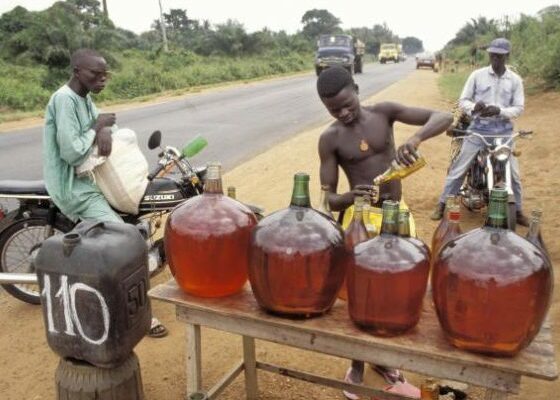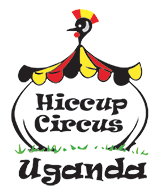Data from the Bank of Uganda and Uganda Bureau of Statistics show that in 2018, Ugandan informal exports – or smuggled products – were worth US$546.6 million. For their part, smuggled imports were worth US$60 million. But these numbers are an underestimation as they are based on data from official border posts, which excludes goods smuggled through many unofficial smuggling routes. Moreover, the data shows that for the DRC – which in 2018 accounted for almost half of Uganda’s informal trade value – informal export and import figures are almost always higher than the formal ones. What does the story of the Opec Boys tell us? The Opec Boys – a term used to refer to fuel smugglers operating in the regions bordering DRC – are a telling illustration of the dynamics of smuggling in the West Nile. The Opec Boys have been studied at different moments in their history over the last 20 years. Their roots can be traced to the late 1970s and early 1980s. This was when much of the population of north-western Uganda fled to neighbouring DRC and Sudan after the overthrow of the Amin regime. During this time, a number of exiled young men made a living from smuggling fuel. They didn’t stop doing so upon their return to Uganda. They started an organization that came to be known as the Opec Boys. Many other young men returning to their home areas, with no education or assets, were drawn into this fuel business. They would sell smuggled fuel in jerrycans on street corners in the region’s major urban centers. There was a general shortage of petrol stations in the area, and their fuel was cheaper. The Opec Boys got their smuggled fuel in different ways: some smuggled it themselves from Congo, and others used “transporters” who mainly were young(er) boys on bicycles, smuggling the fuel via back roads to avoid security officials. Others bought their fuel from truck drivers, who equally smuggled their fuel into Uganda. The Opec Boys were the most important supplier of fuel in the area until the late 2000s. Around this time, the increased number of fuel stations, and the changing tax regime in DRC pushed many of them out of business. While they still exist, their activities are less prominent. What did they come to represent? The Opec Boys were considered an important social-economic and political force in two major ways. First, they came to constitute an important manifestation of what sociologist Asef Bayat’s calls “un-civil society”. This is an unconventional, un-institutionalized form of civil society. It operates through ad hoc, direct and sporadic action through which it represents the interests of the urban informal sector. This definition applies to the Opec Boys. Particularly during the 1990s and 2000s, they would – led by a charismatic leader – come to the defense of actors within the urban informal sector, such as market vendors or motorcycle taxi riders. They, for example, intervened when urban authorities wanted to forcefully remove street-side kiosks by blocking roads and organizing protests. Second, in doing so, they are an illustration of historian Eric Hobsbawm’s “social bandits”. This is through their links to the population and their composition – young, unemployed men, and (certainly in their early phase) often ex-rebels considered “natural material for banditry”. Their smuggling activities provide employment to, and absorb, a potentially dangerous group: low-skilled, landless young men. In a region with a history of rebel groups, this is seen as an important stabilizing factor, allowing for the voicing of discontent through trading activities rather than illegality. For these reasons, attempts to take formal action against smuggling in the West Nile region often lead to demonstrations and riots. In February 2022, for instance, riots erupted in Koboko town. These were directed against Uganda’s tax collecting agency – the Uganda Revenue Authority. Protestors set the authority’s offices on fire after tax collectors allegedly hit and injured a suspected fuel smuggler (the authority denied this happened). The smuggler was reportedly carrying 320 litres of fuel in sixteen 20-litre jerrycans from the DRC. During the riots, one person was shot dead and several others were wounded. Months earlier, the shooting of a suspected smuggler also led to violent demonstrations. However, this doesn’t mean all smuggling is romanticized. Smuggling goods such as drugs or weapons are looked at very differently and don’t have the same legitimacy and popular support. In sum, smuggling is considered more than a strictly economic activity; it’s a social and political one. In local social imaginaries, it’s seen as an act of resistance, a way to fend for oneself in difficult circumstances.

